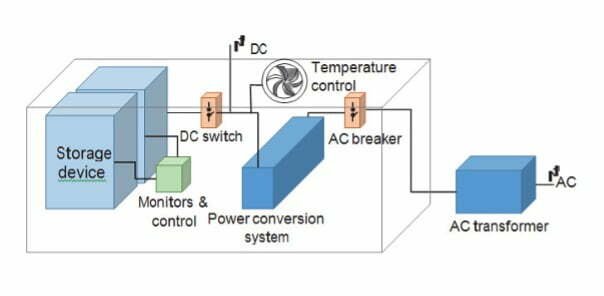As the renewable energy landscape transforms, energy storage technology has emerged as a crucial element in facilitating this evolution. With the demand for reliable and efficient energy solutions increasing, understanding the complete value chain of electrochemical energy storage is vital for industry professionals. This article delves into the fundamental components of the energy storage sector, showcasing their significance and interconnectivity.

1. Batteries: The Backbone of Energy Storage Systems
At the heart of energy storage solutions lie batteries. These devices are pivotal in determining the storage capacity and performance of any energy storage project. Given that batteries constitute a significant portion of project costs—especially in larger installations—the choice of battery technology can influence both performance and economic viability. With advancements in battery chemistry and technology, innovations such as lithium-ion and solid-state batteries are paving the way for enhanced storage solutions that can accommodate the growing demands of the renewable energy sector.
2. Battery Management System (BMS): Ensuring Safety and Efficiency
The Battery Management System (BMS) plays a critical role in monitoring and managing the operational efficiency of energy storage systems. Unlike simpler automotive BMSs, energy storage BMSs are designed to handle more complex tasks, including real-time performance monitoring, charging and discharging control, and safety management to prevent over-voltage and thermal runaway. The intricate nature of energy storage BMSs points to a promising market potential as demand for safer and more reliable storage solutions escalates.

3. Power Conversion System (PCS): Converting Energy Effectively
The Power Conversion System (PCS) is essential for managing the charging and discharging processes while facilitating efficient energy conversion between alternating current (AC) and direct current (DC). In residential energy storage solutions, particularly in off-grid scenarios, PCS becomes indispensable, enabling seamless energy flow and helping to maximize the efficiency of solar energy usage and other renewable sources. As more households and businesses seek to integrate renewable energy systems, the significance of PCS will only continue to grow.
4. Energy Management System (EMS): The Decision-Making Hub
Serving as the nerve center of energy storage operations, the Energy Management System (EMS) is responsible for the strategic decision-making necessary for effective grid dispatch. It oversees the interactions between various energy sources, grids, loads, and storage to ensure operational reliability and optimize energy distribution. By leveraging advanced algorithms and real-time data analytics, EMS enhances system resilience and adaptability in a dynamic energy market.
5. Thermal Management and Fire Protection: Ensuring Safety at Scale
As energy storage capacities grow and operational complexities increase, robust thermal management and fire protection systems become paramount. These systems are crucial for mitigating risks associated with heat generation and potential fire hazards in large-scale storage solutions. Efficient thermal management not only prolongs battery life but also ensures safety, making it a critical component in the design and deployment of energy storage systems.
6. EPC Integration: Opportunities for Global Market Penetration
With the energy storage industry moving towards greater integration, Engineering, Procurement, and Construction (EPC) firms are positioned to play a significant role in facilitating this transition. These firms offer valuable opportunities for domestic players seeking to penetrate global markets, especially as the demand for integrated energy solutions continues to rise. Collaboration between EPC firms and technology providers can accelerate the deployment of innovative energy storage projects worldwide.
Conclusion: Embracing the Future of Energy Storage
The substantial growth of the energy storage sector is supported by policies advocating for mandatory and shared storage models, particularly in markets like China, where large-scale storage solutions are poised for rapid expansion. Globally, the transition towards cleaner energy sources makes energy storage a central focus of the energy revolution.
Understanding the core components of the energy storage industry is essential for stakeholders aiming to harness the full potential of renewable energy technologies. By embracing these innovations and advancing integration strategies, we can pave the way for a sustainable energy future built on reliable and efficient energy storage solutions. Let’s work together to unlock the potential of energy storage as we transition towards a greener tomorrow.